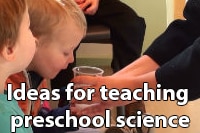
There are so many options for teaching science in a preschool setting! We’ve been visiting preschools for years running preschool science incursions and one thing we know is that kids are highly inquisitive at this young age with an eagerness to investigate their world that older kids rarely match. Why not take advantage of this? Simple things like how things move, colour mixing, what makes sound, hot vs cold, water play and more are fascinating for young children and so it doesn’t take much effort to find objects that can teach them.
The following lists just some of the myriad of ideas you can use to teach science with preschool children. The choice is up to you: you can guide all of the children in an activity or you could set up an exploratory corner for the kids to visit themselves. Either way, you can quickly put together lessons and experiences that not only they’ll love but you’ll be helping to form the basis of their scientific knowledge that they’ll draw on for years to come.
Magnets: what sticks, what doesn’t?
Magnets have always been a drawcard for young kids. With guidance, you can show that magnets will attract certain metals towards them and not others, that magnets have two poles that can be shown using iron filings and that magnets have rules for when they’ll stick together and when they do not. Be sure to use good quality magnets suitable for preschool children and keep choking hazards away from younger kids in your centre.
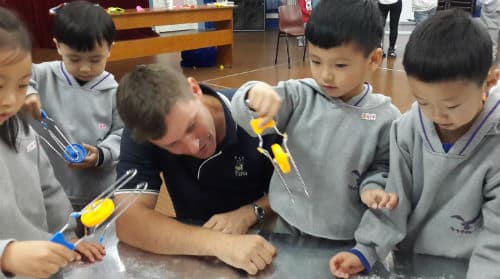
Preschool children at a magnet station on science visit in China.
The science of sound
Every kid loves making noise! Why not make this part of a lesson that sound is really a vibration? There are a number of sound-based science experiments that you can run with you can run with young children. Try making a set of coat hanger gongs or have the kids simulate the sound of a beehive using a balloon and nut hummer, both simple experiments that show sound is created by shaking materials. You could have them investigate high and low pitch using different sized instruments and you yourself could demonstrate sound changes by tapping different sized glasses of water. Again, you can find materials for teaching sound quite easily and it doesn’t have to break the bank.
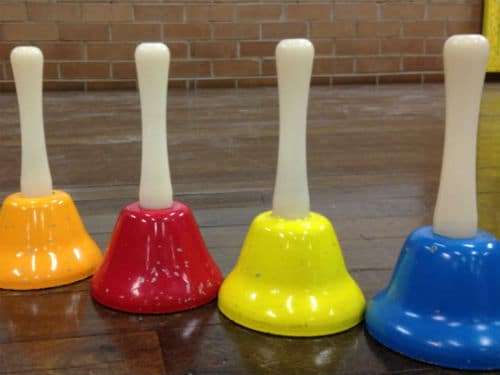
Bells that make different pitches – why do they do this?
Rough vs smooth
Teaching about the 5 senses is a common element of early learner STEM lessons. An exploratory table set up with a variety of different textured objects can grab kids attention quite easily. You get a volunteer to put on a blindfold and use their sense of touch to determine what the object is. You could have the kids use magnifiers to look more closely at the fine detail of pine cones or velcro. You could discuss as a group why the materials have different textures in the first place. No matter what you choose, you’re teaching kids to look more closely at objects and to question why objects are the way they are.
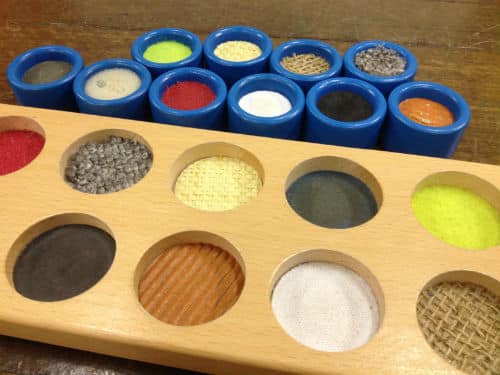
Sensory matching experiment – can the kids close their eyes & match them?
The light fantastic
Looking through lenses, using magnifiers and discovering colours of the rainbow are naturally engaging for kids. Try placing a glass of water in sunlight to get patterns on the ground, place cellophane over torches and mix the lights together, spin rainbow colours together to make white using a Newton colour wheel, use kaleidoscopes and more. Bug catchers often have lenses in them for kids to look at the fine detail of objects and trick money boxes have plastic mirrors within them that stimulate conversations around how light bounces off mirrors. You can find a variety of light & colour preschool resources here.
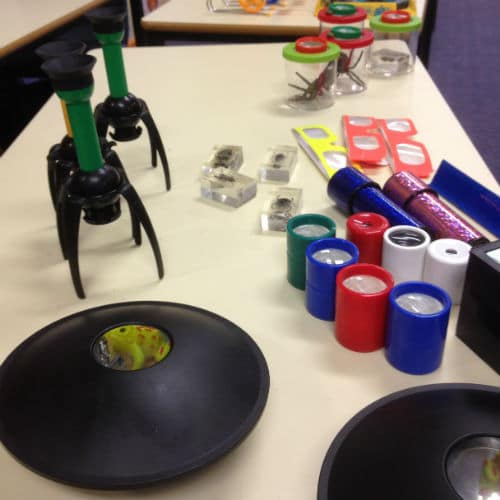
Light experiments kids love
Looking after critters
Children love living things and even more so when they are in charge of caring for them as well. Depending on your local laws and permit requirements you could keep hermit crabs, stick insects, guinea pigs, rabbits, lizards, turtles and more. Having animals in your preschool adds an extra dimension to discussing requirements for life plus teaches children the importance of respect for life and to care gently for others.
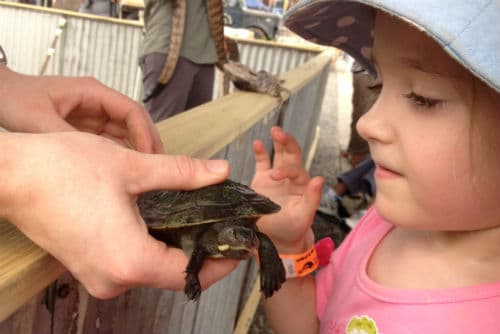
Turtles are always a crowd pleaser!
Teach about our environment
Looking after early learners means that you have the opportunity to teach them to look after our environment. Why not set up a small recycling station for kids to use or make a worm farm? A small vegetable patch could be looked after by kids quite easily and the produce they grow could go into some of their lunch or morning tea!
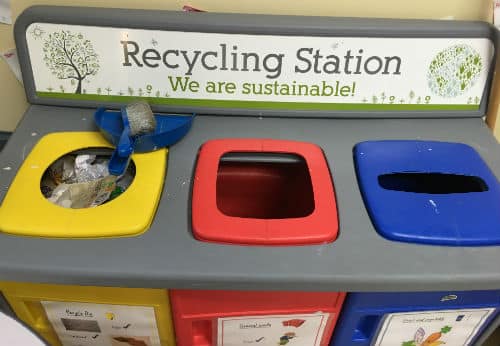
Learning about the environment can start early.
Water play
Anything, where kids can mix different liquids together, is a guaranteed attention grabber. You could have kids look at what floats and what sinks, which liquid is runny and which thick and much more. A favourite of ours is to make tornadoes in a bottle!
The above is just a shortlist of the many things you can do to get young kids involved in learning about their world. Just be sure to choose something that is safe to handle with little fingers and whilst things could get a bit messy you can always teach them to clean up afterwards! Still lost for ideas? Early learner attention spans are short, so be mindful when planning out your lesson. Do not to have too much talking. A good idea is to create a theme for a week (eg. sound week) and or you could even get parents involved in a mini-science fair. The more they do, the more they’ll engage and the more you’ll enjoy opening up the world to them!
Happy teaching,
NEW Primary science teaching book!
“Be Amazing! How to teach science, the way primary kids love”
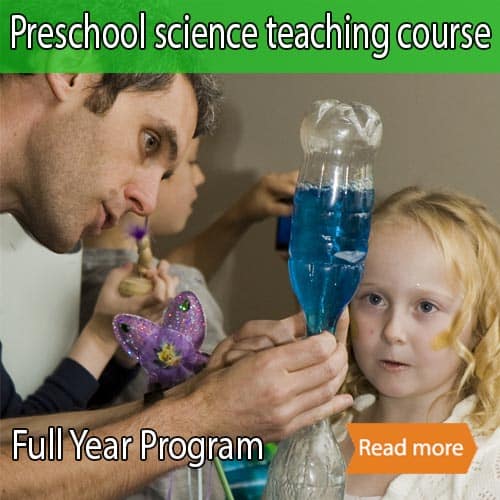

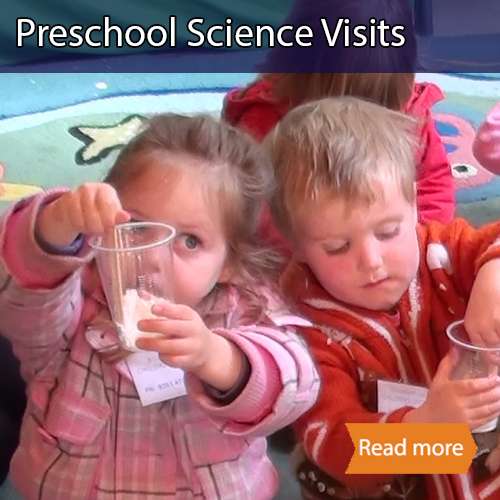
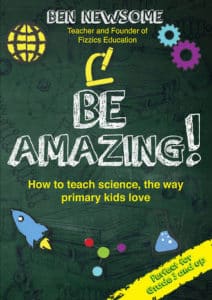

























This seems absolutely wonderful for Kiddos to learn science, I will definitely use in my classrooms.
We hope the kids enjoy these ideas!